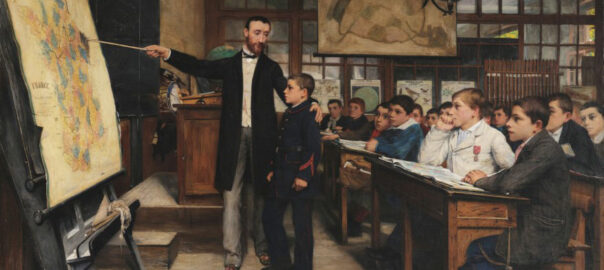
Communities, Schools and Teachers
Communities, schools and teachers all affect students’ educational experiences. In the best case, each of these entities and individuals would work together to support all students to reach their full potential.
Public schools serve as essential pillars within communities, fostering social cohesion, knowledge dissemination, and opportunity for all children regardless of socioeconomic status. They promote civic engagement, diversity appreciation, and collective investment in the future well-being of society.
Humans have become the dominant species on the planet, in part due to our desire and ability to learn from each other and our interactions with the world around us. Unsurprisingly then, successful education programs tend to recognize and leverage the importance of community.
As David Kirp reported in his book Improbable Scholars and as Geoffrey Canada says about his work in Harlem, community involvement—support for and pride in the education each community provides for its young people—helps to make a school successful.
Diane Ravitch, education historian and former Assistant Secretary of Education, is a leading proponent of a strong system of community-based public education. “Do we need neighborhood public schools?” she asks in her book, The Death and Life of the Great American School System. “I believe we do. The neighborhood school is the place where parents meet to share concerns about their children and the place where they learn the practice of democracy. Neighborhood schools create a sense of community among neighbors who might otherwise remain strangers. As we lose neighborhood public schools, we lose the one local institution where people congregate and mobilize to solve local problems, where individuals learn to speak up and debate and engage in democratic give-and-take within their communities. For more than a century, they have been an essential element of our democratic institutions. We abandon them at our peril.”
Ravitch goes on to argue that parents should not be treated as consumers who have to go shopping for a school, she says, but should be able to “take their child to the neighborhood public school as a matter of course and expect that it has well-educated teachers and a sound educational program… Just as every neighborhood should have a reliable fire station, every neighborhood should have a good public school.” Ravitch also makes the case that commitment to a strong system of public education is essential to the very notion of community and a cornerstone of democracy. “As citizens,” she says, “we are all responsible for making good education available to all children, whether or not we have children in public school, and even if we have no children. …Without a well-resourced, equitable, professionally directed system of public education, we will have neither equity nor excellence. For the sake of our society, for the sake of our future, we must pursue both.”
The Importance of Teachers
We all learn best from people we like or admire and who believe in us. The most successful teachers show their students that they matter. They have high expectations, build relationships, and provide personal feedback and guidance. Children need to be valued, and they need a safe space in which they can think for themselves and learn how to learn.
Says education scholar Lisa Delpit, “When I have asked adults who, based on their childhood demographics, should not have but did achieve significant success—those who came from low-income communities, from single-parent families, from the foster care system, or who spent many years in special education classrooms—they have all identified one common factor to explain their accomplishments. Each of these adults attributed his or her success to one or more teachers. All talked about a teacher who was especially encouraging, or who demanded their best, or who convinced them they were more than the larger world believed. Teachers changed their lives, even when the teachers themselves did not realize they were doing so.”
As a society, we need to value and respect teachers, maintain a high bar for entry into the profession, and pay them as professionals.
Teaching is a demanding profession that requires passionate commitment. Teachers need to be knowledgeable in the subjects they teach and proficient with the latest classroom technologies. They need to be skilled in managing a classroom and interacting with and engaging their students. They must be able to recognize and move beyond their own biases to identify the unique strengths and talents of their students. They need a command of a variety of effective pedagogical practices, as well as the latest neurological research, especially about how very young children and adolescents develop and learn. As a society, we need to value and respect teachers, maintain a high bar for entry into the profession, and pay them as professionals.
Collaboration is also key for good teaching. Says Ravitch, “Teachers should work in schools where collaboration and teamwork are prized. They should expect to get help from their colleagues and to give help in return. A school should have a professional tone, where colleagues cooperate, not compete.”
Lisa Delpit advocates for “focused, collaborative learning environments” where teachers meet regularly to work together to solve problems. They may visit each other’s classrooms and give feedback to help each other improve and work together to ensure that instruction is appropriate for their students. Education scholar Andy Hargreaves points out that even in the most remote and isolated rural schools, teachers are finding ways to come together to improve educational opportunity for their students.
The spate of teacher strikes that began in February 2018 in West Virgina and spread across the US provides a dramatic example of teachers coming together to advocate not just for their own working conditions and renewed respect for their profession, but for a larger public commitment to quality education for all students. They see the growth of highly selective “school choice” programs including vouchers and often unregulated charter schools as draining already stretched resources for public schools that continue to serve the vast majority of the nation’s children.
High Expectations and a Focus on Strength
Young people are natural learners. The challenge, and a primary goal of education, must be to nurture already curious, flexible, creative, and potentially critical thinkers—to keep their natural predisposition for learning alive throughout school and beyond. Too often we underestimate young people’s innate creativity, sometimes with devastating effects. Multiple studies have shown a clear link between what teachers expect and what students accomplish. While the relationship between teachers’ perceptions of students’ motivation and engagement and students’ later academic achievement is complex, and causality is difficult to discern, there is certainly value in increasing teachers’ awareness of the potential for biases to affect their expectations and thereby influence students’ success.
Education scholar Yong Zhao is a vocal critic of current educational methods. In Reach for Greatness: Personalizable Education for All Children, he maintains that education today is “obsessed with what children do not know or are unable to do. Worse, education today has developed various ways to speak about children’s deficiency, publicly and loudly, in the forms of tracking, grade retention, and sorting into different programs such as special education, summer remediation, and extra tutoring.” What we need instead, he says, is an education that “supports passion and enhances strengths, instead of fixing deficits or closing gaps.” He argues that we must shift the model from deficiency to strength. Zhao contends that the rapid pace of technological change and the associated uncertainty have created an urgent need for personalized learning. He believes that each child needs to develop “a unique jagged profile of capabilities based on his or her strengths and passions in order to thrive in the world of uncertainty.”
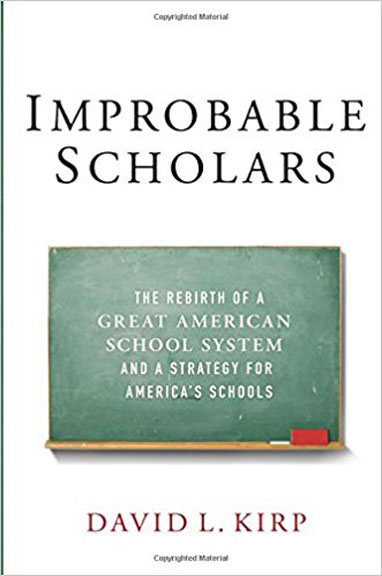
Improbable Scholars
The Rebirth of a Great American School System and a Strategy for America’s Schools
David L. Kirp
How do we determine if our schools are preparing students for a meaningful future in our society and improve the schools that are not living up to those standards? Explores the current crisis in American education and four districts that have made positive changes.
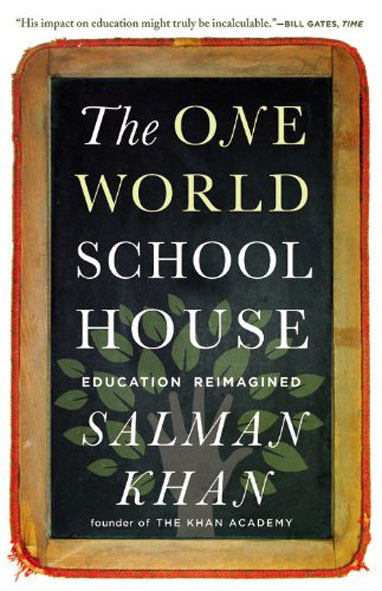
One World Schoolhouse
Education Reimagined
Salman Kahn
There may be a young girl in an African village with the potential to find a cancer cure. A fisherman’s son in New Guinea might have incredible insight into the health of the oceans. By combining the enlightened use of technology with the best teaching practices, we can foster students who are capable of self-directed learning, deep understanding of fundamentals, and creative approaches to real-world problems.
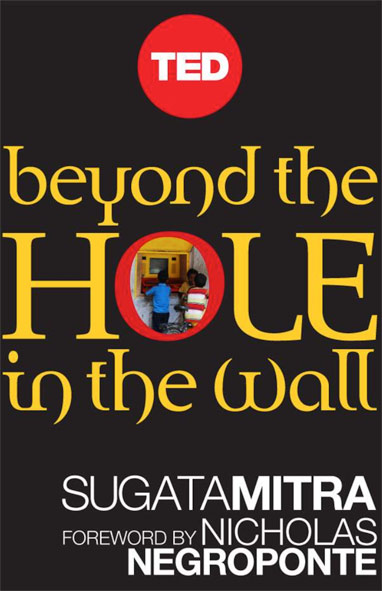
Beyond the Hole in the Wall
Discover the Power of Self-Organized Learning
Sugata Mitra
Sugata Mitra’s now famous experiments have shone light on the immense capacities that children have for learning in self-composed and self-regulated groups.
In the series: Education Yesterday and Today
Related articles:
Further Reading »
External Stories and Videos
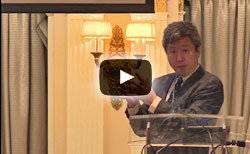
Watch: China Is the Wrong Model
Yong Zhao, Network for Public Education National Conference
Yong Zhao’s lively address brings a thought-provoking perspective on comparing U.S. and Chinese student test scores as a way to evaluate our education systems.
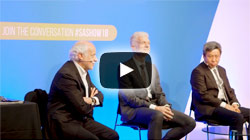
Watch: Experts Debate Merits of PISA
Yong Zhao & Andreas Schleicher, Schools & Academies Show Birmingham 2018
Education scholars Yong Zhao and Andreas Schleicher share their divergent views on the pros and cons of OECD’s international testing program.

The Other Segregation
Whitney Pirtle, The Atlantic
The public focuses its attention on divides between schools, while tracking has created separate and unequal education systems within single schools.
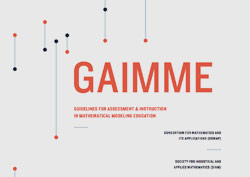
Math with Meaning
COMP & SIAM
Math educators provide helpful guidelines for transforming traditional math equations and problems in a way that gives students as early as pre-K the foundation to tackle open-ended, reality-based questions collaboratively—questions that they find meaningful and can enhance their future. (PDF)
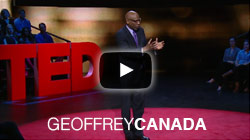
Watch: Our Failing Schools. Enough is Enough
Geoffrey Canada, TED
Why does our education system look the way it did 50 years ago? Millions of students were failing then, as they are now — and it’s because we’re clinging to a business model that clearly doesn’t work. Education advocate Geoffrey Canada dares the system to make systematic shifts in order to help greater numbers of kids excel.
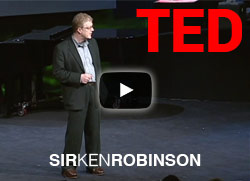
Watch: Do Schools Kill Creativity?
Sir Ken Robinson, TED
Here the entertaining and profoundly moving case for creating an education system that nurtures (rather than undermines) creativity
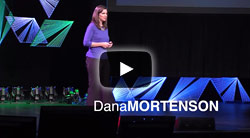
Watch: Will Our Kids Be Ready for the World in 2050?
Dana Mortenson, TED
World Savvy founder Dana Mortenson explores how teaching and learning in the U.S. is changing, or should change, in our rapidly evolving, interconnected global society. Will our kids will be ready to compete in, and contribute to, a new reality?
